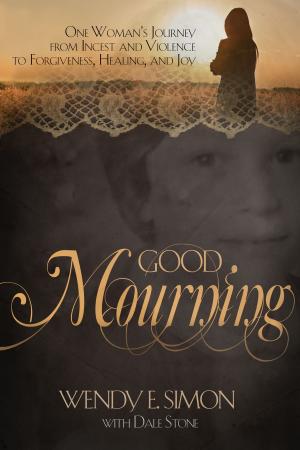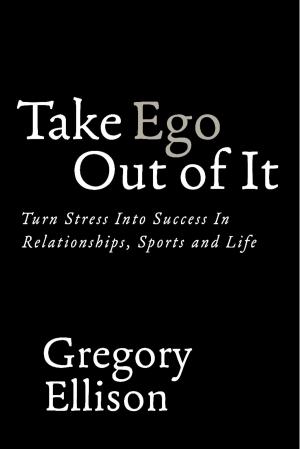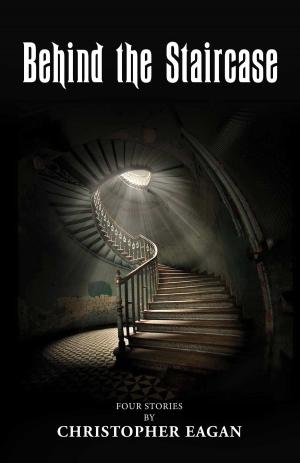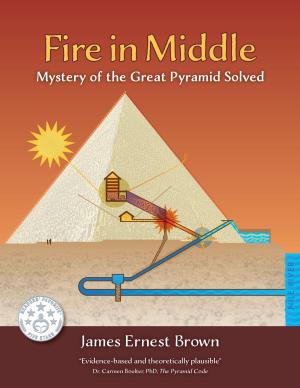The Apple Tree
Raising 5 Kids with Disabilities and Remaining Sane
Nonfiction, Family & Relationships, Parenting| Author: | Linda Petersen | ISBN: | 9781620959596 |
| Publisher: | BookBaby | Publication: | May 12, 2012 |
| Imprint: | Language: | English |
| Author: | Linda Petersen |
| ISBN: | 9781620959596 |
| Publisher: | BookBaby |
| Publication: | May 12, 2012 |
| Imprint: | |
| Language: | English |
The six-week-old infant boy, with gorgeous blue sparkling eyes and blonde hair does not make eye contact with his mother who is trying to nurse him because he cannot see. The five-month-old infant girl from Guatemala with happy brown eyes smiles easily, but cannot hear the voice of her mother. The six-year-old boy with dark skin and gorgeous black curls hides behind a large, fake plant rather than join his family at the table for Christmas dinner. The Hispanic boy’s joyful smile at his mother turns to a smoldering stare, holding the darkness within him. The seven-year-old girl with beautiful blue eyes and blonde hair, does not love her mother, and tells her so every chance she gets. She tells her in American Sign Language. Are these snapshots of five troubled families? No, these are the children of my family. My name is Linda Petersen. My husband RAYMOND and I have five children with five different disabilities. Our first son Francis was born blind and we later found that I carried the same gene that had left my brother blind, deaf and multiply disabled. So we adopted our second child, Dinora. Declared healthy, she turned out to be malnourished and deaf and suffering from attention deficit, post traumatic stress and anxiety disorders. Still we coped. I worked part time and drove my pair to numerous medical and school appointments, while Raymond pitched in admirably on housework and cooking. But when Francis and Dinora became teenagers and my schedule eased, I ached to do more. Raising children was great fun and I had the time, emotions and ability to give. Raymond adored children, so our only dilemma was how to add to our family. Since we lacked the money to adopt again, we became foster parents and requested only infants. Caring for and watching babies grow and develop has been an awesome and humbling experience. Although most were returned to their parents or adopted by relatives, we wound up adopting three of these children ourselves. Each, it turned out, had serious disabilities as well. As they grew, horror stories emerged from their family backgrounds: beatings, sexual abuse, severe neglect, cocaine addiction, and neurological damage. Our family is a walking dictionary of medical conditions and psychological syndromes, some so severe that you would never expect that child to live a normal life. Yet our children have survived and thrived. I hope in this book to share with others the approach that has worked for us. Acceptance and humor ease life’s burdens. Patience and understanding trump even the greatest disability.
The six-week-old infant boy, with gorgeous blue sparkling eyes and blonde hair does not make eye contact with his mother who is trying to nurse him because he cannot see. The five-month-old infant girl from Guatemala with happy brown eyes smiles easily, but cannot hear the voice of her mother. The six-year-old boy with dark skin and gorgeous black curls hides behind a large, fake plant rather than join his family at the table for Christmas dinner. The Hispanic boy’s joyful smile at his mother turns to a smoldering stare, holding the darkness within him. The seven-year-old girl with beautiful blue eyes and blonde hair, does not love her mother, and tells her so every chance she gets. She tells her in American Sign Language. Are these snapshots of five troubled families? No, these are the children of my family. My name is Linda Petersen. My husband RAYMOND and I have five children with five different disabilities. Our first son Francis was born blind and we later found that I carried the same gene that had left my brother blind, deaf and multiply disabled. So we adopted our second child, Dinora. Declared healthy, she turned out to be malnourished and deaf and suffering from attention deficit, post traumatic stress and anxiety disorders. Still we coped. I worked part time and drove my pair to numerous medical and school appointments, while Raymond pitched in admirably on housework and cooking. But when Francis and Dinora became teenagers and my schedule eased, I ached to do more. Raising children was great fun and I had the time, emotions and ability to give. Raymond adored children, so our only dilemma was how to add to our family. Since we lacked the money to adopt again, we became foster parents and requested only infants. Caring for and watching babies grow and develop has been an awesome and humbling experience. Although most were returned to their parents or adopted by relatives, we wound up adopting three of these children ourselves. Each, it turned out, had serious disabilities as well. As they grew, horror stories emerged from their family backgrounds: beatings, sexual abuse, severe neglect, cocaine addiction, and neurological damage. Our family is a walking dictionary of medical conditions and psychological syndromes, some so severe that you would never expect that child to live a normal life. Yet our children have survived and thrived. I hope in this book to share with others the approach that has worked for us. Acceptance and humor ease life’s burdens. Patience and understanding trump even the greatest disability.















